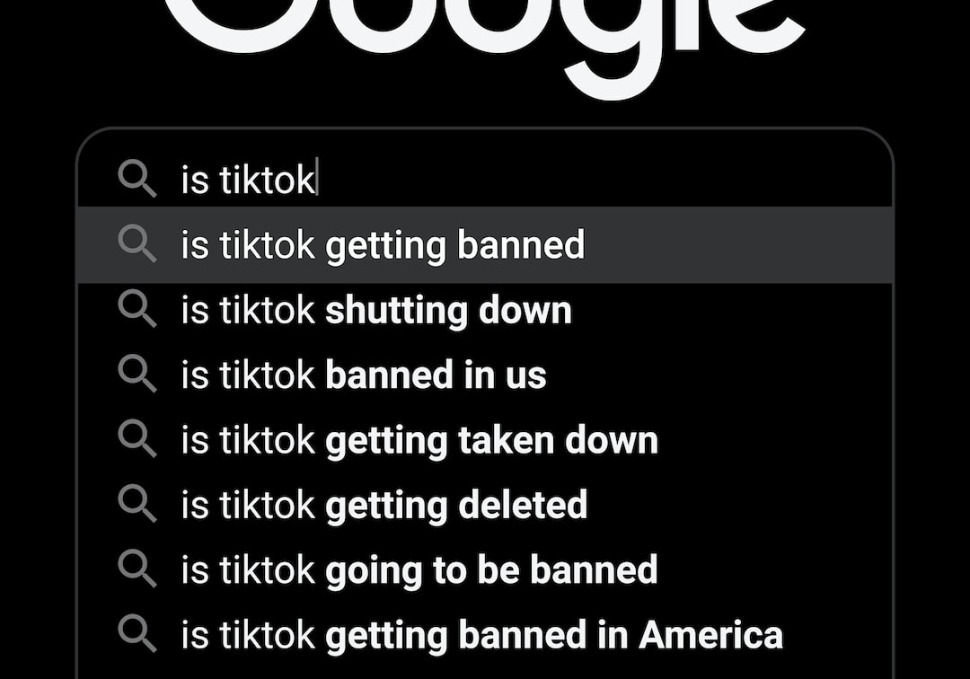With advancements in SEO, marketers no longer focus on targeting a single keyword throughout their web content.
Emphasis is now on building semantically relevant content around a topic. This shift aligns with Google’s consideration of semantic keywords when ranking webpages. Google uses this mechanism to provide its users with relevant results that satisfy their search intent. The best practice for improving search visibility is to find semantic keywords and target them in your web content.
Semantic keywords are keywords or phrases conceptually related to the original keyword. They provide search engine crawlers with more insight into the topic a page discusses, allowing the algorithm to rank web pages accurately.
In this post, you’ll learn about semantic keywords, why they’re important and how to find them.

What Are Semantic Keywords?
The semantic field is a set of words or phrases that belong to the same theme. Semantic keywords are words or phrases conceptually related to your primary keyword that you can use to enrich your content. They help add context to your content, making it easier for users and search engines to understand the theme of your content.
The idea behind semantic search is that when search engines look for web pages to rank, they don’t just look for matching keywords. Search engines identify the intent and meaning of a search based on every word used in a query. And then retrieve information based on the search query’s context and meaning.
What Is Semantic SEO?
Semantic SEO is the practice of producing and optimizing content to satisfy the semantic search. This is done by ensuring that a piece of content covers various relevant, related topics with depth and meaning.
Semantic content is information-rich, in-depth, and satisfies user intent. It helps search engine crawlers better understand and categorize your content. And rank it better in SERPs, improving users’ experience, and providing visibility to your website.
Semantic SEO is about understanding the relationship between keywords and topics and contextualizing them into relevant and thorough content. This differs from traditional SEO, where keyword placement is emphasized.
Websites can use semantic SEO strategies to build topical authority in their industry. This strategy can help you outrank your competitors for crucial keywords in your niche.
Semantic SEO and Google
In the past, Google’s crawlers used to scan websites for keywords to identify the page’s theme, meaning, and relevance. It looked up the frequency of keywords on a page to discover what the page was about. It checked the title tag, content body, image alt text, and headings to discover the information you intended the searchers to learn.
This resulted in marketers using “keyword stuffing” to make their content appear relevant to search engines. This means that they used the primary keyword several times on a page to rank for that keyword.
Google made significant advancements to understand and rank web content better, providing more relevant results to users. These updates enabled Google to easily understand the topic, related subtopics, and entities a piece of content covers.
Some of the advancements made include:
1. Knowledge Graph
This is a large, sophisticated knowledge base that helps Google crawlers understand the relationships between specific entities and concepts.
2. Hummingbird
Google introduced Hummingbird in 2013 to provide more relevant results to users. This update made it possible for Google to understand the meaning and context behind search queries.
The new update changed the way Google’s algorithm delivered search results. Google now processes search queries as a whole instead of interpreting words individually. The algorithm checks for context and synonyms and ensures that the search results content is comprehensive.
Now, search engines watch keyword density closely and penalize websites that engage in keyword stuffing. The algorithm prefers content that provides depth and value for the user.
3. RankBrain
This machine learning algorithm helps Google better understand and interpret search intent to provide users with more relevant search results.

Benefits of Semantic Keywords
Using semantic keywords in your content can enhance the contextuality of your content and boost your search rankings. Semantic SEO is a crucial marketing strategy that can reap many benefits if done correctly. Some of the benefits include.
1. Helps Google Understand and Rank Your Website in SERPs
Incorporating semantic keywords in your content helps search engines understand your page better and rank it accurately. This way, Google provides users with the most relevant information about their search query. The more you prioritize semantic keywords, the better your content will perform on Search Engine Result Pages.
2. Improves Your Content’s Relevance
Using semantic keywords throughout your content improves the clarity of your content and makes it more search engine-friendly. It also helps prevent “keyword stuffing.”
3. Improves User Search Experience
Two users may search for the same information differently, so using words closely related to your original keyword improves the searcher’s experience. It helps search engines match search queries with high-quality, meaningful content that accurately satisfies the user intent. This increases the number of users who find your content and the time they spend on your page.
4. Presents Your Website As an Expert in Topic Areas
The comprehensive nature of semantic content makes users and Google more likely to “trust” your website and associate it with solid authority.
It also makes search engines perceive your website as an expert in a topic and a highly relevant and authoritative website in search results.
How to Find Semantic Keywords
Keyword research is at the heart of every SEO strategy, including semantic SEO. The first step to successful keyword research is creating a list of relevant keywords for your business. This list of keywords can then be used to generate other relevant keywords.
Here’s how to find semantic keywords.
1. Google Autocomplete
Google’s search feature is an easy way to find keywords related to your primary keyword. Enter your seed keyword into Google’s search box, and you’ll get a list of keyword suggestions related to your searched term. Compile a list of all the keywords relevant to your topic.
2. Google’s Search Engine Result Pages
Google’s Search Engine Result page offers a great source of keywords related to your searched term. The “Related Searches” section at the end of the SERP lists common keywords and phrases related to what you searched for. Type your primary keyword into Google and scroll down to the bottom of the result page. Check out the keywords to learn about the topics or terms people search for related to your primary keyword.
The “People Also Ask” feature in the middle of the SERP is another gold mine for finding semantic keywords. This section contains questions related to your searched term, which are great semantic keywords.
3. Google Ads Keyword Planner
Google Keyword Planner is an excellent resource for building a list of semantically related keywords. You can also gain insight into the search volumes and competition level of the keywords you’re considering.
Enter a keyword in the search box, and click on “Get Ideas.” The keyword planner will display a list of keywords related to your searched term. The results will include keyword ideas, ad group ideas, suggested bids, monthly searches, and competition. You can use keyword filters to customize your search.
4. Google Trends
Google Trends lets you see patterns in searches people make. Using the tool, you can see if a particular search term is trending and in which regions it is most popular.
Google Trends also offers information on related searches and topics. For example, if you search for “running shoes,” you’ll get a graph displaying the latest information on the search term’s performance in SERPs. Beneath the graph, you’ll see related searches and related topics to your primary keyword.

5. Social Monitoring Tools
Social Monitoring Tools let you track customers’ conversations about your industry on social media. You can set up alerts to know when people talk about topics you write about. This way, you get insights into their real-time discussions about a topic.
You can also look up keywords you want to write about on popular platforms. These searches will help you find public posts about your topic, where you can find more semantic keywords.
6. KeywordTool.io
Keyword Tool is an excellent option for discovering semantically related keywords. It provides keywords from sites like YouTube, Google, Bing ads, Google suggest, App Store, and Amazon. The Pro version of the tool lets you see features of keywords like cost per click, search volume, and competition.
Enter a keyword in the tool’s search bar, and choose your preferred search engine, language, or domain. The results will display two groups; Questions and Keyword Suggestions, which contain a list of keywords related to your searched term.
7. LSI Graph
LSI Graph is a keyword generator great for generating identical keywords. Enter your search term in the text field and verify the ‘captcha.’ The tool will display a list of keywords related to your searched term, including the popularity of all the keywords.
Conclusion
Google practices have shifted from identifying the frequency of specific keywords to determining the theme and relevance of a piece of content. It now processes search queries as a whole and then analyzes webpages for content that provides in-depth information and value for the user.
Google uses semantic keywords to understand the context of webpages, whether they be news articles, blog posts, product descriptions, or more. It uses these contextual connections to provide users with the best results for their queries.
Marketers no longer identify single keywords and insert them throughout their web content. The focus is now on building semantically relevant content around a topic relevant to the search intent.
Understanding how to find semantic keywords is critical to the success of your content marketing. This guide has all the information you need to find semantic keywords.
It’s time to take action.
Explore All Keyword Research Guide Articles
White Label Keyword Research Tools Worth Considering
White-label keyword research tools are becoming increasingly popular amongst online marketers. These powerful platforms offer many benefits that can help…
A Guide to Advanced Competitor Keyword Analysis
Assessing the competition can effectively identify your website’s strengths, weaknesses, and opportunities. Knowing your competitors’ SEO strategies and tracking their…
A Guide to Effective Keyword Rank Tracking
Everybody wants to be on top of Search Engine Results Pages (SERPs). And knowing where your website and content rank…
How to Find Negative Keywords in Google Ads
The whole point of using ads is to target potential customers. You don’t want your ads showing up for unrelated…
The Google Search Console Guide for Keyword Research
Crafting an effective keyword research strategy is no small feat. It requires an in-depth understanding of your audience, a comprehensive…
How to Pick Effective Focus Keywords
A focus keyword for Search Engine Optimization (SEO) is critical to ensuring the success of any digital marketing strategy. Not…
